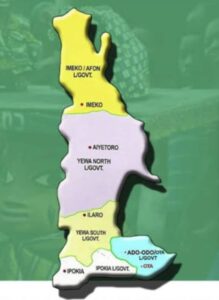
Grounds for declaration of a State of Emergency in Nigeria
The power to declare a state of emergency in Nigeria is vested in the President, but it is subject to certain constitutional provisions. The legal basis for this is primarily found in Section 305 of the Constitution of the Federal Republic of Nigeria, 1999 (as amended). Key grounds include:
Imminent Danger of War or Invasion: If the state is facing an imminent threat of war or external aggression.
Actual Breakdown of Public Order and Public Safety: This is a significant one. If there is widespread violence, unrest, or a complete collapse of law and order that the state government is unable to handle.
Clear and Present Danger of an Actual Breakdown of Public Order and Public Safety: Even if the breakdown hasn’t fully occurred, if there’s a very real and immediate risk of it happening.
Natural Disaster or Other Calamity: Earthquakes, floods, widespread disease outbreaks, or other disasters that threaten the security and well-being of the population.
Other Occurrences Requiring Extraordinary Measures: This is a more general clause, but it must be a situation that “constitutes a danger to public safety or public order,” or requires special measures to maintain essential services.
Failure of Democratic Institutions: A situation where democratic institutions in the state have collapsed or are unable to function effectively.
Appointment of a Sole Administrator
Constitutional Authority: Where a state of emergency is declared, the President has the power to make orders in relation to the state. The appointment of a Sole Administrator is one possible action the president can take.
Rationale: The rationale behind appointing a Sole Administrator is usually to restore order and stability in the state when the existing government structures are deemed unable to do so. The Sole Administrator essentially takes over the functions of the Governor and the State Executive Council.
Checks and Balances: Importantly, the declaration of a state of emergency needs to be approved by a resolution passed by a two-thirds majority of both Houses of the National Assembly (Senate and House of Representatives). The National Assembly also has the power to direct that the state of emergency be revoked. The initial proclamation is valid for a limited time (I believe it is a period of 6 months that can be extended with legislative approval), requiring renewal by the National Assembly if it needs to continue.
Important Considerations:
Judicial Review: The declaration of a state of emergency and the actions taken under it are subject to judicial review. This means that the courts can examine whether the President acted lawfully and within the bounds of the Constitution.
Human Rights: Even during a state of emergency, certain fundamental human rights cannot be suspended or violated.
Political Sensitivity: Declaring a state of emergency is a very serious step with significant political implications. It is often controversial and can be seen as an infringement on the autonomy of the state government.
Disclaimer: This information is for general knowledge purposes only and does not constitute legal advice. You should consult with a qualified legal professional for advice on any specific legal issue.
Rivers: Tinubu seeks Reps approval for emergency rule
APC, PDP disagree on Rivers State emergency rule
Share your story or advertise with us: Whatsapp: +2348033202396 Email: sentinelnewsng@gmail.com










